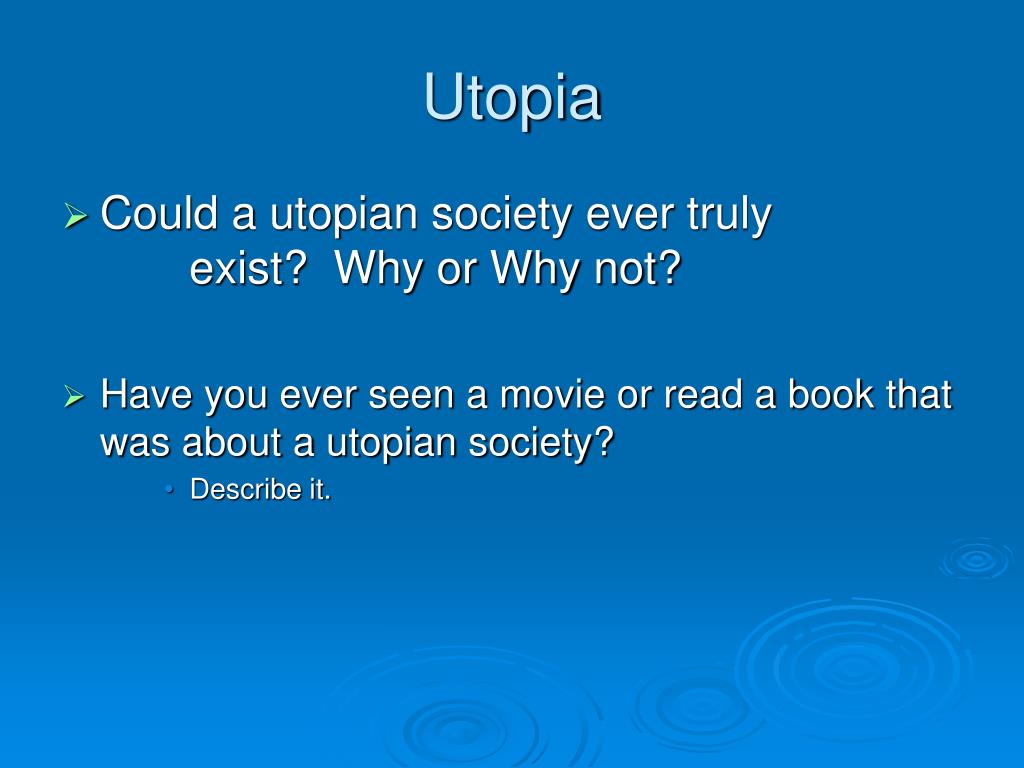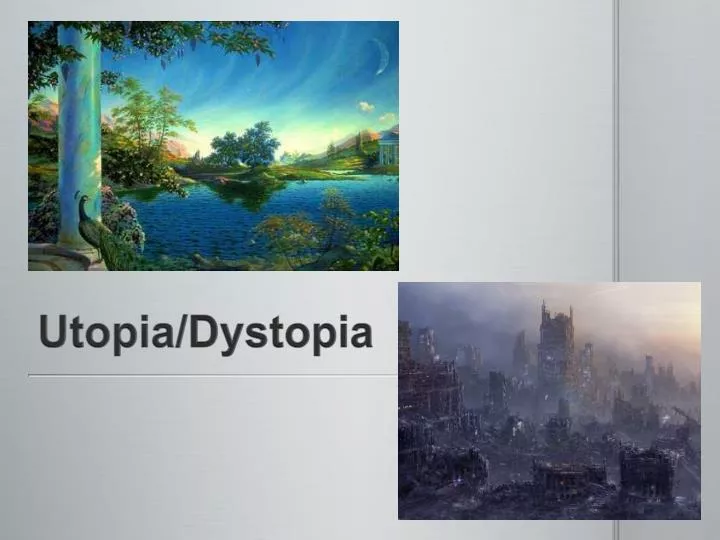

Whether you see Omelas as a utopia or a dystopia, depends on your attitude toward “greater good” theories of morality, such as utilitarianism. This famous short story raises the question of whether living in a utopia would be OK if the price was torturing an innocent victim. This is the setup of Urula LeGuin’s The Ones Who Walk Away from Omelas. But their happiness comes at a dreadful price. The machine generates all the energy and income for the city of Omelas, and is the source of everyone’s happiness. Except, that is, in one tiny corner of a basement somewhere in town, where an innocent child is hooked up to a machine that causes her intense pain. There is no poverty, injustice, sickness, or sorrow of any kind. Examples of Utopia in Literature Example 1 In these stories, human problems are treated as technical glitches, to be resolved solely through technology. In a technological utopia, scientists and engineers have worked out technological development, such as genetic engineering or total surveillance, perfectly. But you could also do the same thing for Islam, Buddhism, or any other religion – the problem, of course, is that it might not be persuasive to readers who belong to a different tradition! e. Christian authors throughout history have written utopian stories about what society would be like if everyone was a perfect Christian. ReligiousĪ religious utopia is one based on the precepts of a particular religion. In an ecological utopia, humans live in perfect harmony with nature: their society produces no pollution, their food sources are sustainable, and the environment is protected, bringing about happiness for humans. But they are still a source of inspiration to writers. Of course, no such utopias have ever existed in real life and in most stories, the society turns out to be very imperfect indeed, usually a nightmare. The author believes (or at least wants to explore the possibility) that a society following a pure form of their philosophy would be without flaws.

Many utopias are based on a particular political, social, or economic philosophy. When you come across a utopian story or image, try to work out what kind of moral, political, or scientific ideal is being explored.Īll these utopias use and explore questionable morals or ethics, such as the genetic perfection of human beings. They might be about political ethics, environmental ethics, religious ethics, or the ethics of science. On the other hand, a libertarian utopia would be a society based on perfect freedom and individualism. These stories can be a great way to test out such philosophies by seeing how they would actually affect people in practice. For example, an eco-utopia would be a story exploring the concept of a society based on perfect harmony with nature. Utopian stories are generally written to explore ideas about how society should or could be. However, it may seem far from perfect to us– for example, Plato’s society outlawed music! In fact, scholars still debate whether Plato really meant it to be a true utopia or whether he meant is as a criticism of utopian ideals, like most such stories. In The Republic, Plato describes his perfect society.

Of course, the planets at the fringes of Federation space are far less utopian. The central worlds of ‘The Federation’ in Star Trek are often depicted as utopias – they are lush with greenery and beautiful architecture, and there is no evidence of any hunger, poverty, or war. Utopian literature is generally about exploring real problems facing our world and making political, philosophical, or moral points through storytelling. Almost all of them are revealed to be the opposite of utopia-dystopia-during the course of the story. However, very few fictional utopias are true utopias. Utopias are very common in fiction, especially in science fiction, where authors use them to explore what a perfect society would look like and what the problems might be in such a flawless society. A perfect society in which everything works and everyone is happy – or at least is supposed to be. A utopia (pronounced you-TOE-pee-yuh) is a paradise.


 0 kommentar(er)
0 kommentar(er)
